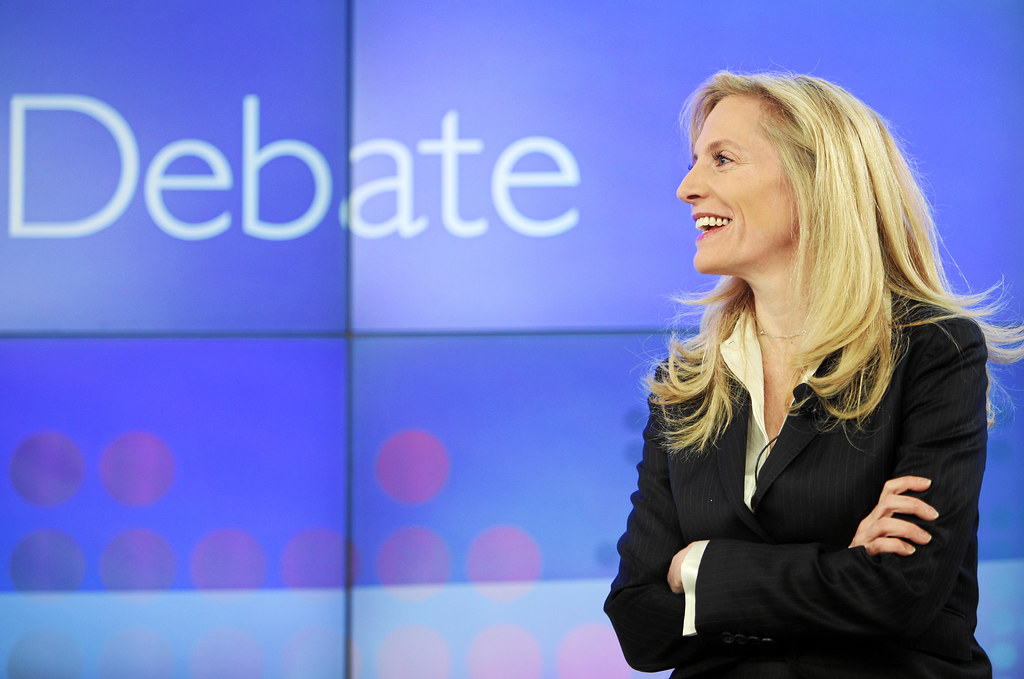There’s no getting around that the Federal Reserve’s many ethics scandals look bad for Chair Jerome Powell. His once seemingly surefire reappointment has been thrown into uncertainty as critics question why three (and counting) top officials appeared to profiteer from the central bank’s Covid-19-related policies under his watch. In response, Powell’s defenders have searched for reasons why the buck actually doesn’t stop with him.
Some now say Governor Lael Brainard — the only Democrat on the Open Markets Committee, and Powell’s favored replacement by many progressives — ought to be blamed for the trading scandals. After all, she is the head of the Board of Governors’ Committee on Federal Reserve Bank Affairs, which oversees the regional banks.
I touched briefly on the flaws in this argument in my piece for The American Prospect today about Powell’s hyper-powerful Chief of Staff Michelle Smith. But it’s a topic worth expanding on.
For one, this criticism could only apply to the Board’s failures to detect trading by former regional bank presidents Eric Rosengren and Robert Kaplan. The Committee on Federal Reserve Bank Affairs has no jurisdiction over Vice Chair Richard Clarida, who is Powell’s own second-in-command, and made multi-million dollar trades the day before Powell himself issued a market-moving statement.
But the deeper problem with this argument gets at one of the most fascinating, least discussed dynamics of the Fed: the fact that it is an extraordinarily top-heavy institution, perhaps more than any part of the federal executive branch.
As I wrote for the Prospect, section 10.2 of the Federal Reserve Act states that “the chairman of the Board, subject to its supervision, shall be its active executive officer.” [emphasis added] In plain English, that means that the Fed Chair alone is responsible for the day-to-day operations of the central bank, and is vested with the authority to set internal policies and procedures. Not the full Board of Governors, not even the Vice Chairs — just the Chair.
This is a common misconception, even among close Fed watchers: as far as internal Fed governance goes, the structure is less like a democratic legislature in which all voices are equal, and more like a company’s Board of Directors if the Chair was both the head of the Board and the CEO of the company. Everyone else can offer advice, but they can’t really do much.
This “active executive officer” language is also why the idea of an aggressive Vice Chair for Supervision to counter-balance Powell’s deregulatory instincts (he is a former private equity titan) is fatally flawed. As our Eleanor Eagan has explained previously, the only way to have an empowered and aggressive Vice Chair for Supervision (VCS) is to appoint a strong VCS and a Chair who will empower them. You need career staff in sufficient numbers and with sufficient motivation to actually do supervision. The career staff answer to Powell, and through his Chief of Staff, he can pick and choose which staffers and in what number get taken off of other projects to work on supervision.
But I digress. Since she isn’t the Chair, Brainard could not have set new rules prohibiting bank presidents from making trades generally, or gone outside of the standard protocols to investigate the bank presidents further. She could follow Ben Bernanke’s 2008 precedent and not make personal trades amidst unprecedented turmoil, but she couldn’t make anyone else follow her lead. She’s not allowed to. She’s not an executive officer.
Powell was the one with the authority to initiate ethical safeguards, and he not only failed to do so, but made some dubious trades himself. And as Powell personally told CNBC reporters, it had been standard protocol for years to renominate regional bank presidents even if they hadn’t submitted their personal financial disclosures yet. In Powell’s own words, “It has not been part of the process … I wouldn’t blame the people who conduct that review.”
Further, serious vetting of the regional bank presidents would have required, well, people to conduct that vetting. However, Brainard, like other members of the Board of Governors, has a handful or less of professional staff that report to her. A real vetting requires Powell to order it. He did not.
In practice, Powell isn’t personally giving marching orders to every individual Fed staffer in Washington, hence the concentration of power in Smith. But the point is that those blaming Brainard for these oversight failures ought to read the actual statute which created the central bank. If you’re the sole executive officer (or the sole executive officer’s chief of staff), you take the blame for executive failings. The buck really does stop with Powell.

